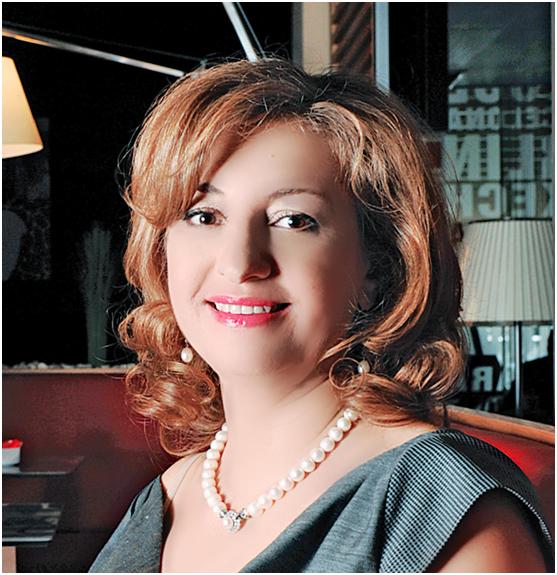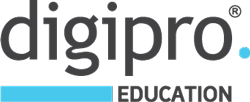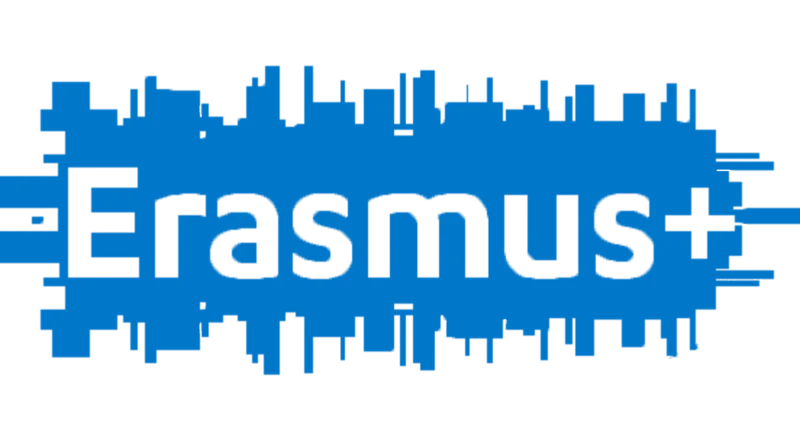Fostering Transdisciplinary Learning Processes in the AI Enhanced K-12 Classroom

Instructor
-
 Chryso ChristodoulouCEO - Founder
Chryso ChristodoulouCEO - FounderMrs. Chryso Christodoulou is the founder of FUNecole® Research Institute and the co-founder of Digipro Education Limited. Her academic background is in Computer Science and Education. She is the designer and author of the FUNecole® for Cambridge ICT Starters Initial Steps endorsed by University of Cambridge International Examinations and recognized best practice educational approach by the European Commission. Mrs. Christodoulou is an external educational expert for the Institute of Prospective Technological Studies (IPTS) on various educational research projects. She is a program committee member for the Institute of Electrical and Electronics Engineers’ (IEEE) Computer society. Mrs. Christodoulou participates as keynote speaker and panelist at numerous conferences, seminars and workshops around the world. Mrs. Christodoulou´s work has been published in scholarly and policy publications, such as IEEE Xplore and the European Parliament Magazine. She is a recognized as an entrepreneurship expert by OECD and is one of 350 European Ambassadors of Entrepreneurship.
Date
- Jun 29 2025 - Jul 05 2025
Time
- 1:00 am - 8:30 am
Outline:
- The integration of Artificial Intelligence (AI) in education is revolutionizing learning environments. Transdisciplinary learning, which transcends traditional subject boundaries, encourages students to explore complex problems through diverse perspectives.
- AI technologies can further enhance this process by providing personalized, data-driven learning experiences and promoting collaboration across disciplines in a systemic and uninterrupted school-wide approach in the K-12 education.
- Teachers (pre-school, primary, secondary, vocational, adult education)*
- Teacher trainers(pre-school, primary, secondary, vocational, adult education)*
- Curriculum coordinators/designers (pre-school, primary, secondary, vocational, adult education)*
- Head teachers/principals/deputy-assistant heads/academic heads/managers (pre-school, primary, secondary, vocational, adult education)*
*Any discipline/subject is welcomed including science, ICT/technology, engineering, mathematics, languages, business/finance, arts, sports and other.
By the end of this workshop participants will be in a position to:
- Design innovative lesson plans based on robust pedagogies.
- Develop holistic and personalised learning experiences using flipped, differentiated, parallel, integrated and all-inclusive classroom instruction.
- Use discovery-oriented, contextual, problem-oriented, case-based, socially and intrinsically motivated learning.
- Infuse technology into the 21st century school curricula.
- Re-define the role of the teacher who has to make room for other types of learning (e.g. self-learning, peer learning and curiosity driven learning.
- Introduce the One to One and Bring Your One Device (BYOD) learning frameworks.
- Use STEM lesson approach for both primary and secondary education.
- Introduce global education initiatives.
- Be familiarized and use a plethora of web based tools and recourses.
- Support the 21st century smart skill set development initiative.
The workshop methodology aims to support participants in how to expand their own personal skills and knowledge. This aim will be accomplished by providing robust and well-designed case studies, integrating sample educational demos, presenting and discussing real life scenarios, performing group assignments and demonstrating web enabled tools and recourses. There will be also presentations using PowerPoint slides, videos and various other multimedia tools.
Participants will be guided in a very concise way, both on the strategic side and on the practical classroom management side. Participants will be asked to bring their own materials into the seminar and will be encouraged to interact with the lecturers and other participants. This workshop will follow a very pragmatic approach that will enable the active participant interaction.
The seminar notes are going to be available to participants in hard copies as well as in electronic form via a dedicated online class blog.
Participants are strongly encouraged to bring their own laptops.
DAY 1 – SUNDAY (16:30 – 18:30)
Fostering Transdisciplinary Learning Processes
The Importance of Learning: Blending transdisciplinary subjects for holistic education.
Teaching the Whole Child: Integrating social-emotional learning with academics.
Future-Ready Skills: Preparing students for the future with innovation, collaboration, and problem-solving.
Case Study 1: Harvard Graduate School of Education – Project Zero
Integrating art, history, science, and technology.
Case Study 2: Singapore’s Inquiry-Based Interdisciplinary Approach
Inquiry-based learning with global and local challenges.
Day 1 Project 1:
Facilitate interdisciplinary connections for higher-order thinking like synthesis and analysis.
Day 1 Project 2:
Encourage students to connect theoretical knowledge with real-world applications.
DAY 2 – MONDAY (09:00 – 16:30)
Integrating AI into Pedagogical Models using the Multidisciplinary Process Approach
Personalized Learning Pathways: How AI analyzes students’ strengths and weaknesses to create personalized content.
Interdisciplinary Problem Solving: AI tools for transdisciplinary problem-solving.
AI-Driven Collaboration and Knowledge Sharing: Using AI-enhanced platforms for collaborative learning.
Day 2 Project 1:
Group projects on personalized learning, collaborative problem-solving, and AI-enhanced collaboration.
Data-Driven Insights for Educators
How AI insights provide differentiated student insights for creating cross-disciplinary teaching strategies.
Day 2 Group Project 2:
How the IB curriculum promotes inquiry and interdisciplinary study.
Day 2 Group Project 3:
Preparing students using the IB curriculum for higher education and global challenges.
AI as a Cross-Disciplinary Mentor
How AI virtual tutors and assistants guide students across different disciplines.
Ethical and Societal Implications in AI Projects: Encouraging students to explore the ethical implications of AI.
Encouraging Creativity Through AI-Enhanced Arts and Humanities
AI technologies inspire creativity across art, technology, and linguistics.
Day 2 Project 4:
Integrating AI in a wide-school approach using Pear Deck eLearning tools.
DAY 3 – TUESDAY (09:00 – 16:30)
Recapitulation of the Previous Day
Connecting and Aligning Transdisciplinary Processes with the Cypriot Educational Standards
Adjusting school programming and scheduling for a new way of teaching and learning.
Transdisciplinary curriculum mapping for alignment with Cypriot educational standards.
Day 3 Project 1:
Design your own transdisciplinary AI-enhanced classroom with clear focus, research, and alignment to student goals.
Day 3 Project 2:
Design AI-enhanced multidisciplinary lesson plans integrating AI tools into two or more STREAMS areas.
Case Study: The FUNecole® Creative Learning STREAMS Approach
Presenting FUNecole® pedagogy, teacher development, and student learning platforms.
Best Practices for Connecting Transdisciplinary Approaches with Special Education
Strategies for integrating arts and technology with special education needs.
Deploying Transdisciplinary Lessons
Encouraging student communication, creativity, and problem-solving through transdisciplinary lessons.
Case Study: The Future-Ready Students
Adopting personalized learning methods and flexible learning environments for better student outcomes.
Day 3 Project 4:
Group work on eLearning presentations after reviewing the case study.
DAY 4 – WEDNESDAY (09:00 – 16:30)
Integrating Artificial Intelligence with Collaborative Learning Models
How AI tools enhance collaborative learning in multidisciplinary environments.
Examples of collaborative AI tools used in education for enhancing communication and knowledge sharing.
Project 1:
Develop collaborative learning scenarios using AI tools that integrate multiple disciplines.
Group discussions on best practices for using AI in collaboration-driven classrooms.
Ethics and AI in Education
Ethical considerations when using AI tools for educational purposes.
How to teach students about the ethical implications of AI in education.
Project 2:
Design a collaborative project where AI tools enhance the problem-solving process in real-world scenarios.
Creating Multidisciplinary AI Learning Environments
How to design classrooms and school environments that incorporate AI tools across various subjects.
Case Study: AI-Based Learning Environments
Exploring schools using AI technologies to facilitate deep learning and enhance curriculum outcomes.
DAY 5 – THURSDAY (09:00 – 16:30)
The Role of AI in Problem-Solving Across Disciplines
How AI can facilitate interdisciplinary problem-solving in areas like sustainability, health, and technology.
Discussing how AI integrates knowledge across different subject areas.
AI and Global Education
How AI is reshaping global education standards.
Case studies of AI-driven initiatives in international education systems.
Project 1:
Collaborate to design interdisciplinary problem-solving activities enhanced by AI tools.
Data Analytics in Education
How data analytics are used to assess and improve teaching strategies, student learning, and interdisciplinary curriculum development.
Project 2:
Develop a data-driven teaching plan for an interdisciplinary class using AI.
DAY 6 – FRIDAY (09:00 – 16:30)
Sustainable Education Models with AI
Creating sustainable educational models using AI.
Case studies of schools using AI to enhance sustainability in learning and teaching.
Project 1:
Design a sustainable learning model incorporating AI, transdisciplinary teaching, and personalized learning pathways.
Integrating Creativity into STEM Education
Using AI and other technologies to foster creativity within STEM subjects (Science, Technology, Engineering, and Math).
Project 2:
Design creative STEM projects that utilize AI tools for student learning and engagement.
Future Trends in AI and Education
Discussing future trends in AI technology and its potential impact on education systems globally.
DAY 7 – SATURDAY
Panel Discussions
The Future of STREAMS Education: Discussing the role of STREAMS in developing the future workforce.
Bridging the Digital Divide: How technology promotes equal access to quality education.
Real-World Applications of STREAMS: Professionals sharing how STREAMS skills are used in their fields.
Group Presentations
Presenting group projects that contain learning experiences driven by authentic passion and need.
Wrap-up and final discussions.


